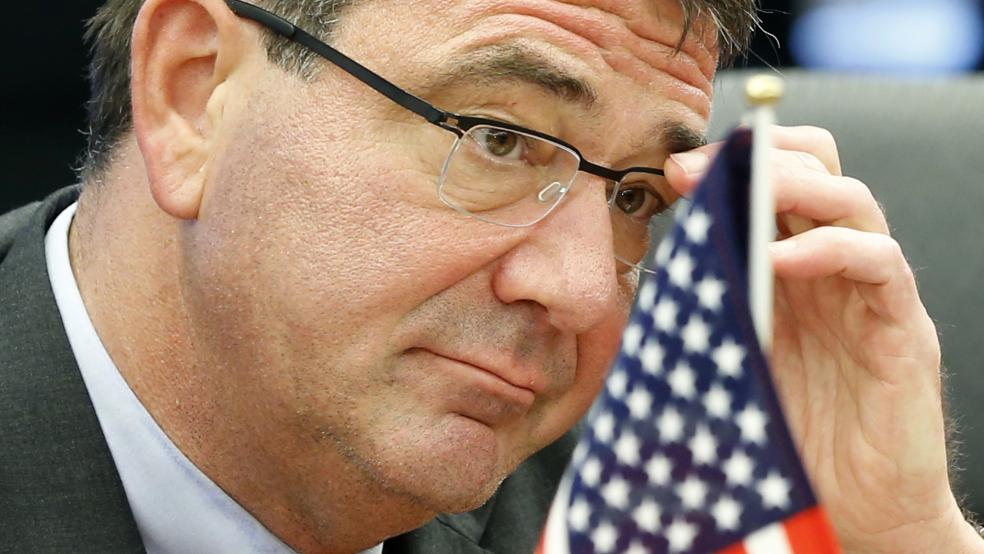There seems to be a slight difference of opinion between Defense Secretary Ash Carter and an incoming class of service leaders over just how much of a threat Russia poses to the United States.
Speaking to reporters on Thursday, Carter said he agreed with the latest crop of military brass that Russia “poses an existential threat to the United States by virtue simply of the size of the nuclear arsenal that it's had.”
Related: The Russian Bear is Back, Just Itching to Start a New Cold War
“Now that’s not new,” he added. “What's new … is that for a quarter century or so, since the end of the Cold War, we have not regarded Russia as an antagonist. Vladimir Putin’s Russia behaves in many respects … as an antagonist. That is new. That is something, therefore, that we need to adjust to and counter.”
Carter would only say that Russia poses a “very significant threat” to the U.S.
Yet a string of military leaders have recently put Russia atop their threat list, including Marine Corps Gen. Joseph Dunford, who will take over as Joint Chiefs of Staff chair later this year, newly installed Army Chief of Staff Gen. Mark Milley, and incoming Marine Corps Commandant Gen. Robert Neller.
All three warned lawmakers of the danger posed by the former Cold War adversary during their Capitol Hill confirmation hearings this summer.
The reason for the daylight between Carter and the service chief can be chalked up to Washington and Moscow continuing to work together on a number of security issues, like trying to curb Iran’s illicit nuclear program or dealing with North Korea, as he alluded to during his press conference.
Related: Eyeing Russia, the Air Force Sends More A-10 Warthogs to Europe
In that way, Carter’s stance more closely resembles that of Secretary of State John Kerry, who has declined to dub Russia an existential threat because of ongoing, joint diplomatic efforts.
“So where Russia sees its interests as aligned with ours, we can work with them and will continue to do that,” Carter told reporters.
He said, The U.S. will “continue to hold open the door so that if either under Vladimir Putin or some successor of his in the future there's a leadership that wants to take Russia in the direction that I believe is best for Russia [and] not one of confrontation with the rest of the world and self- isolation, which is the path they're on now, but better economic and political integration with the rest of the world in a way that still keeps the wonderful history and culture and so forth and greatness of Russia in tact that that leadership do so.”





